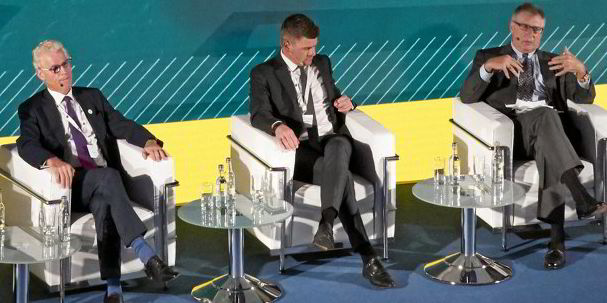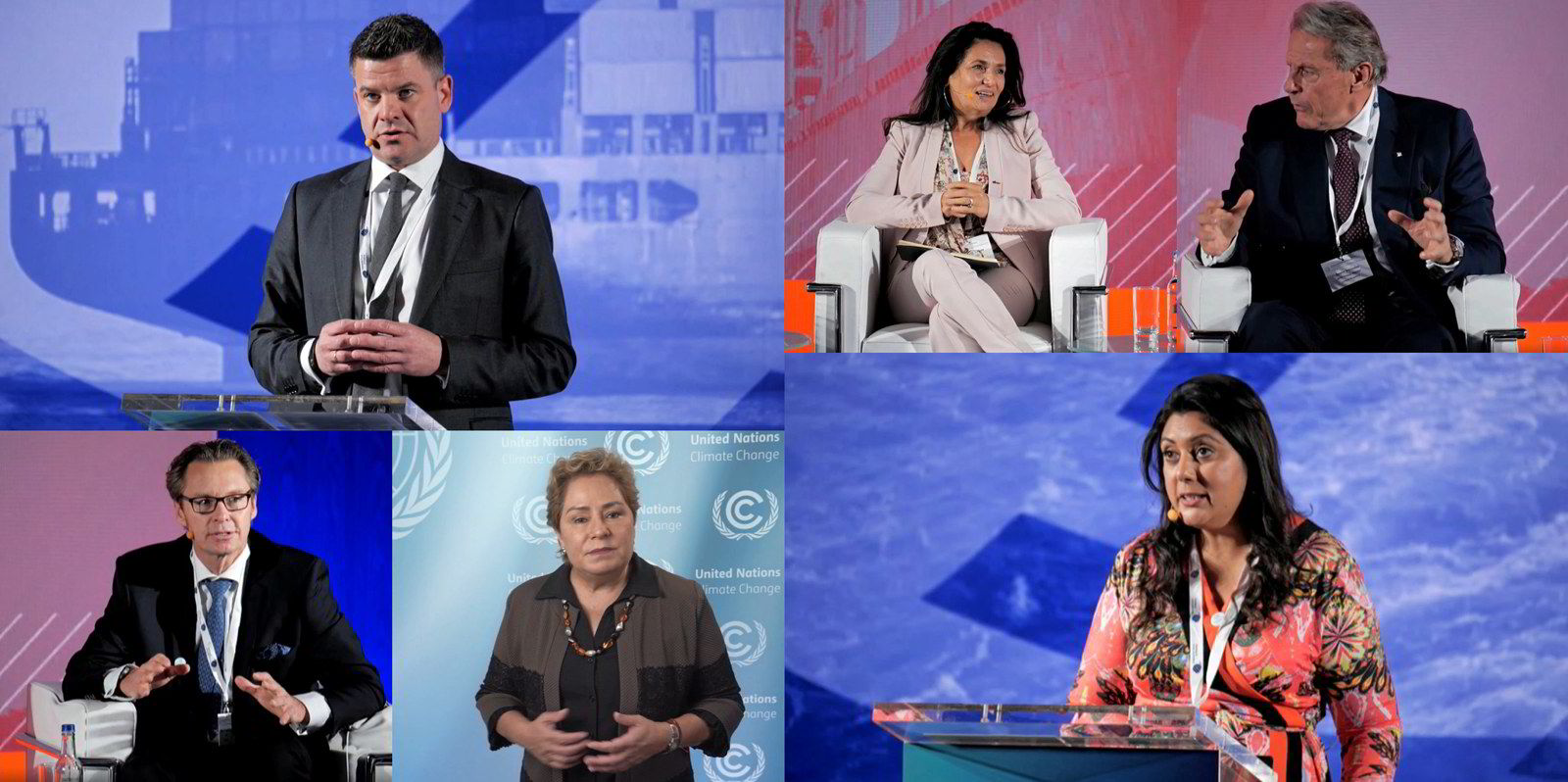Shipping needs to be given governmental priority as a first mover in the transformation to a global net-zero economy, and bold decisions need to be made on fuel choice, industry players said at the Shaping the Future of Shipping conference.
Ocean Network Express chief executive Jeremy Nixon said shipping should no longer be at the back of the queue for fuel.
"We have to make sure we are at the front of the queue for renewable energies, because if we can decarbonise shipping, we can decarbonise the world," he said.
Picking up on the argument that shipping is the enabler of energy transition by being the mover as well as user of green fuels, ABS chief executive Christopher Wiernicki said shipping needs to be given priority by governments as it will be competing with other users.
"Governments will have a pretty significant role in this, but shipping is going to be the critical enabler. It is going to be shipping that is going to move the green ammonia from Chile to distribution centres around the world," Wiernicki said.
"Nobody talks enough about ports in how we are going to get there."
He said infrastructure to handle ammonia and hydrogen requires a well-developed port strategy.
"Governments need to prioritise shipping. It is not the second show, it should be the main show," he added.
But at the conference hosted by the International Chamber of Shipping, Torvald Klaveness chief executive Lasse Kristoffersen said methanol and LNG would not get shipping to net zero, as they are still carbon emitters.
Hydrogen as a liquid or gas has the same energy density as lithium-ion batteries, so will also not work, he said.
"There will not be a multitude of solutions, there will not be five fuels in each port," he said. "We need to make some choices. For me, we have to make ammonia work – and that all starts with renewable energy production."

A carbon levy will be necessary, he added, because even with zero electricity costs, green ammonia would cost $1,000 per tonne and not be able to compete with any fossil fuels.
Kristoffersen argued that shipping needed schemes similar to the Contracts for Difference agreed between the offshore wind industry and UK government to bring down prices.
"It's not a gradual transition," he said of ammonia. "We need some big players to make some bold choices."
First movers need to be incentivised, Nixon added: "Shipping is a hard abatement industry — please governments, prioritise shipping."




